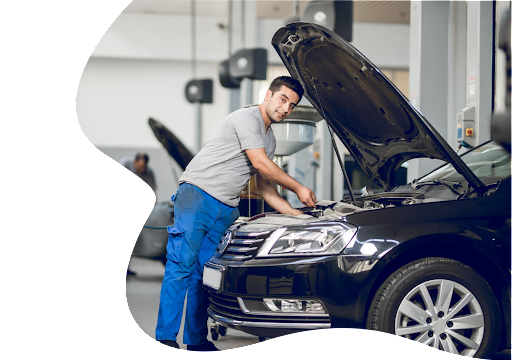All Categories
Featured
Your automobile's brakes are among the most essential elements in ensuring your safety and security and the safety of others when driving. Normal brake evaluations are important to keeping optimal braking performance and preventing pricey repair work. Whether you're a skilled vehicle proprietor or a new vehicle driver, understanding brake inspection standards can help you stay positive about upkeep and guarantee your car is always roadworthy.
- Why Brake Inspections Issue. The even more you drive, the a lot more rubbing your brake pads sustain, at some point leading to decreased stopping efficiency. Without correct evaluation, it's tough to determine when your brakes could be in need of repair service.
A well-maintained brake system ensures fast, receptive quiting power, especially in emergency situations. It also assists expand the life of your vehicle, as overlooking brake upkeep can bring about extra serious, pricey troubles later on.
- Indications You Need a Brake Examination. While it's essential to have your brakes checked regularly, certain indications may indicate that they require interest. Watch (and ear) out for these warning signals:
Squeaking or Grinding Noises: Uncommon sounds, particularly a piercing screech or grinding sound, usually indicate that your brake pads are used down. Resonance or Pulsation: If you feel vibrations or a pulsing sensation when pushing the brake pedal, maybe an indication of distorted blades or unequal brake pad wear. Minimized Brake Responsiveness: If your brakes really feel much less receptive or you need to press the pedal harder to decrease, it may suggest air in the brake lines or reduced brake fluid. Drawing away: If your car pulls to one side when braking, it can mean irregular brake pad wear or a brake liquid leak. Control Panel Warning Lights: Some vehicles have brake-related warning lights that show concerns like low brake liquid or used brake components. If you observe any of these signs, it's essential to have an expert mechanic do a brake inspection as quickly as possible.

- What Happens Throughout a Brake Examination? During a brake assessment, an auto mechanic will inspect a number of vital parts of the stopping system to make certain whatever is in functioning order. Below's what you can expect during the process:
Brake Pads and Shoes: The technician will examine the thickness of the brake pads or shoes. If they're as well thin, they'll need to be replaced. Brake Rotors: Rotors are the discs that the brake pads press versus to slow your automobile down. They'll be examined for any kind of signs of wear, racking up, or warping. Brake Liquid: Low or polluted brake fluid can impair stopping performance. The technician will check the fluid degree and quality and top it up or flush it if necessary. Brake Lines and Pipes: Brake lines bring fluid from the master cyndrical tube to the brakes. The technician will examine for any leakages, fractures, or damage to ensure proper fluid flow. Brake Calipers and Wheel Cyndrical Tubes: Calipers and wheel cylinders push the brake pads versus the blades or drums. The technician will certainly look for wear, leakages, and proper procedure. 4. Just how Commonly Should You Have Your Brakes Checked? The frequency of brake evaluations depends upon aspects like your driving habits, the kind of car you drive, and the setting in which you drive. As a basic rule, it's a great concept to have your brakes checked every 12,000 miles or once a year. If you experience any of the warning indicators mentioned earlier, it's crucial to obtain your brakes inspected right away.
For those that frequently drive in rush hour, mountainous surface, or severe weather, more constant assessments may be necessary.
- Importance of Timely Brake Repairs. When you detect an issue with your brakes, it's important to resolve it right away. Postponing brake repair services can lead to more considerable damages to your stopping system, leading to higher repair work costs. In severe instances, overlooking brake issues can lead to complete brake failure, which is a significant safety danger.
By remaining on top of brake upkeep and resolving problems without delay, you make sure that your brakes continue to execute as intended, maintaining you and your passengers safe when driving.
Final Thought: Keep Your Brakes in Top Forming. Brake inspections are a basic yet important component of vehicle maintenance. By understanding the value of regular inspections, understanding the indicators of brake issues, and remaining proactive with fixings, you can guarantee your vehicle's stopping system stays in ideal condition.
Latest Posts
Flat Roofing Services - Professional Flat Roofing by Weathercraft GC.
Experience Red Hawk Gastropub: Twin Falls' Favorite Restaurant
Top Idaho Fence Company - Custom Ornamental Iron Fencing for Your Property.
More
Latest Posts
Flat Roofing Services - Professional Flat Roofing by Weathercraft GC.
Experience Red Hawk Gastropub: Twin Falls' Favorite Restaurant
Top Idaho Fence Company - Custom Ornamental Iron Fencing for Your Property.
